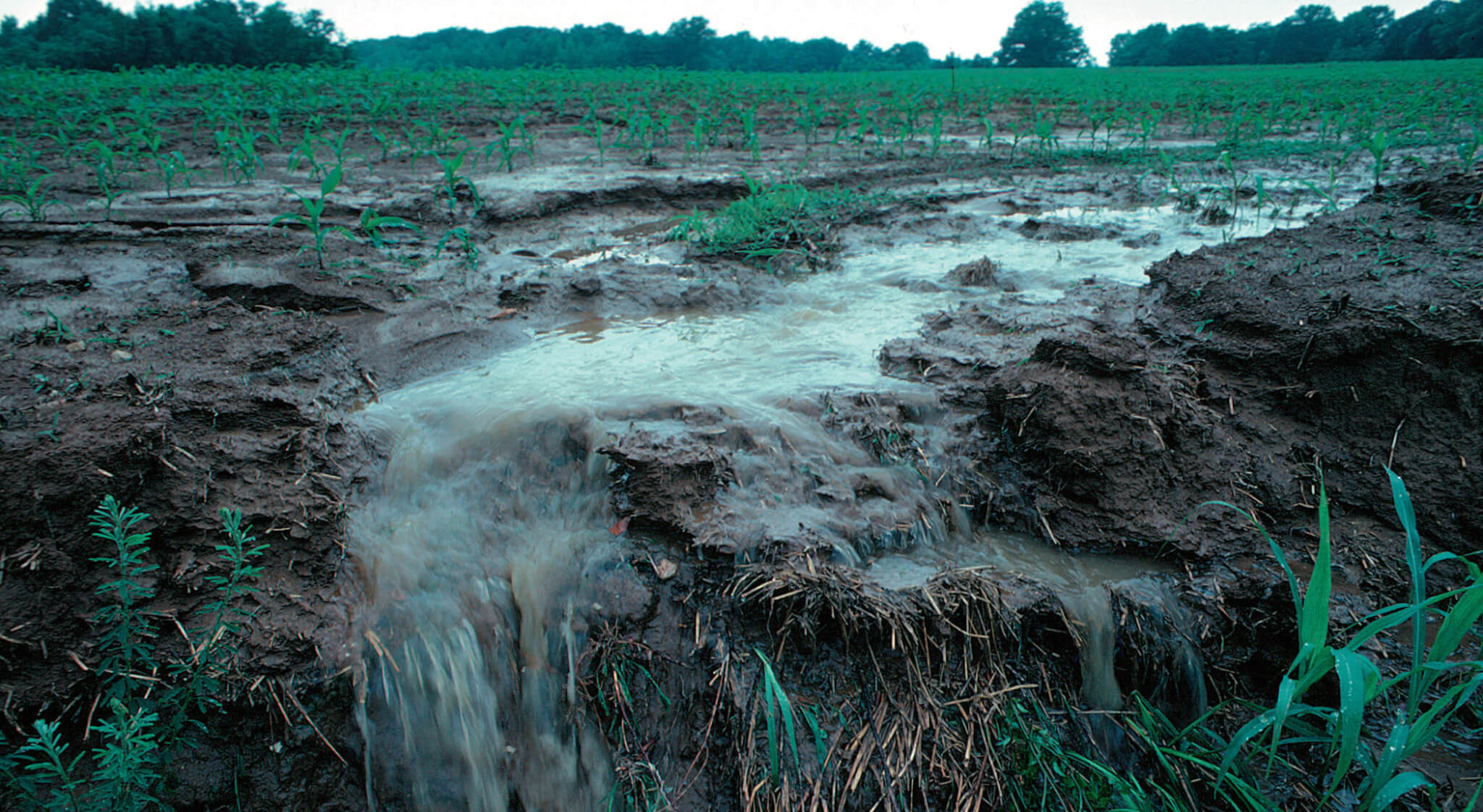
Iowa farmers’ greatest asset is their soil. It’s the amazing productivity of Iowa’s soil that makes our state the agricultural powerhouse in feeding the world. The fertility and yield potential of Iowa topsoil has earned it the title as Iowa’s “black gold.” Yet, Iowa Republicans don’t want to discuss the undeniable truth that Iowa’s black gold is washing away at ten times the rate of replenishment.
Republicans love to brag that they are the true conservatives. How can these self-proclaimed conservatives refuse to acknowledge the disappearance of Iowa’s greatest natural resource? Safeguarding Iowa’s soil should be priority number one for anyone that claims to be a conservative. Iowa’s black gold is the foundation that all of Iowa agriculture depends upon for its future. Republicans’ stubborn resistance to any required implementation of conservation measures betrays their commitment to conservative principles.
Iowa Democrats have advanced a number of proposals to address Iowa’s soil loss and water pollution. In 2016, Senator Joe Bolkcom offered a check-off solution to provide the needed funds.
“Let’s use the voluntary check-off approach that corn and soybean growers, pork, cattle, poultry and egg producers already use to generate tens of millions annually to support their marketing and research plans,” said Bolkcom.
In addition, Iowa Democrats have pushed for other funding proposals for conservation measures. They have repeatedly called for funding the voter approved Natural Resources Trust Fund. Republicans refuse to listen to the 63% of Iowans that voted to approve that conservation measure.
Agricultural universities, related interest groups and government agencies have accumulated enormous evidence proving that simple conservation practices can reduce or reverse Iowa’s vanishing soils. The solutions for slowing and reversing this rate of soil loss require major conservation efforts such as buffer strips, grass waterways, terraces, cover crops and no-till.
Maintaining both the health, quality and quantity of Iowa’s essential natural resource is crucial to Iowa farmers today. However, if Iowa soils are allowed to wash away at the current rate, the next generation of farmers will be left with an inevitable future of falling productivity. Iowa’s agricultural future productivity is dependent on preserving and sustaining its black gold today. When will Iowa Republicans come to the table and join with Iowa Democrats to design a solution that will end the loss of Iowa agriculture’s greatest resource?
The shocking estimates put the loss of Iowa’s topsoil at an unsustainable rate loss average of 5.5 tons per acre per year. According to the USDA Natural Resources Conservation Service, Iowa has lost an average of 6.8 inches of topsoil since 1850. That loss rate of topsoil is unsustainable over time. The Iowa Daily Erosion Project (DEP) has calculated the loss in corn yield that has resulted from this soil thinning. The loss in yield ranges from no loss to as much as 29 bushels per acre on highly erodible land. The average estimated yield reduction is 10 bushels per acre with this loss of 6.8 inches of topsoil. Obviously, other increased inputs of fertilizers, new hybrids and more productive plants have offset this yield loss resulting in increased overall yields. However, had Iowa maintained its soil at sustainable levels, it’s estimated farmers would have seen $1 billion dollars in additional revenue.
The Iowa loss of topsoil is unsustainable at the current rate. The best scientific estimates put the average rate of rebuilding top soil at ½ ton per acre. That indicates Iowa is losing topsoil (5 tons per acre) at a rate 10 times the rate of replenishment (.5 ton per acre). Iowa’s rate of loss of its black gold suggests farmers must reverse this trend or future generations of farmers face a grim outlook.
Clay Mitchell of Buckingham, IA, grower and Harvard biomedical engineer estimates that, “American farmland has lost half of its topsoil and organic matter, and tremendous productive potential… “Because the rate of yield decline is higher as topsoil thins, the cost of erosion is always much higher for the next generation than it was for us,” Mitchell says. “New soil-assessment technologies more accurately track soil texture, organic matter, nutrient levels and many other inventories of our soil resource,” Mitchell says. “As things are now, our soil resource is like a mine: as long as the bucket comes up full from the mine, we don’t worry about depleting it. But one day that bucket will come up empty, and we need a gauge to reflect what we’re consuming.”
Sustaining Iowa’s black gold for future generations is the responsibility of all Iowans, including Iowa Republicans.
by Rick Smith
Posted 8/14/17

Iowa Republicans make outlawing gay marriage key 2024 campaign priority
Iowa Republicans have made outlawing gay marriage a key goal in their 2024 party platform. During the Iowa GOP’s 2024 state convention on Saturday,...

Department of Justice says Iowa immigration law violates US Constitution
If Iowa doesn’t suspend the enforcement of its new immigration law by May 7, the state could face a federal lawsuit, according to the Des Moines...

Rushing: Iowa State president said the quiet part out loud
I want to thank Iowa State University President Wendy Wintersteen for doing us all a favor by finally saying the quiet part out loud: all the...

Iowa sets aside almost $180 million for year two of voucher program
Iowa has committed nearly $180 million in taxpayer funds to support private school tuition in the 2024-25 school year, which is almost $50 million...

Kalbach: Immediate action needed on corporate ag pollution
Iowa agriculture has undergone substantial changes over the past 40 years. We see it all around us. Rather than crops and livestock being raised on...

VIDEO: Jochum calls Gov. Reynolds’ summer meal program a ‘hunger game’
Iowa Gov. Reynolds announced a competitive $900,000 grant program to feed Iowa children over the summer, months after she declined $29 million in...





